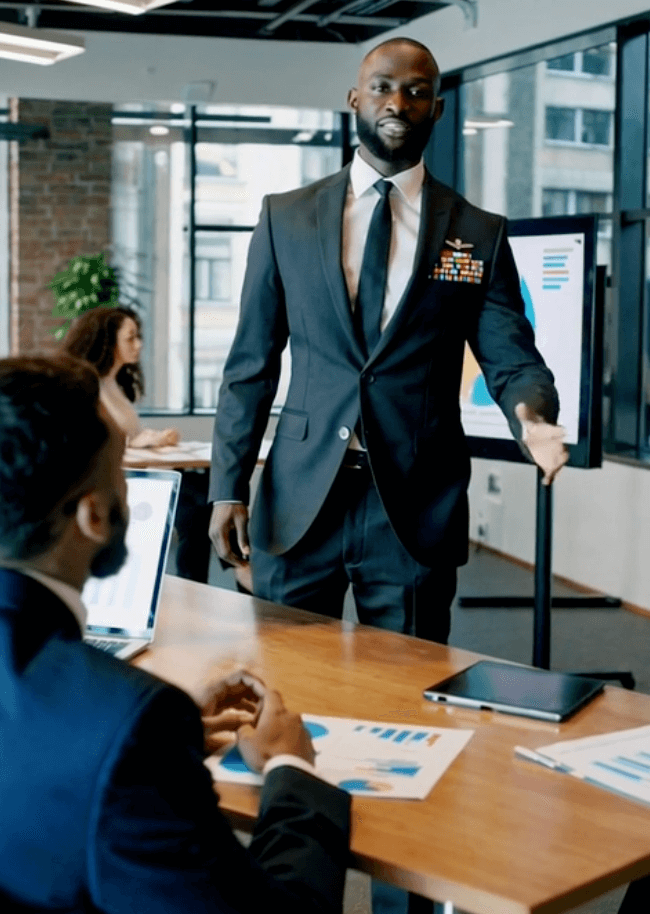
Transforming Heroic Military Skills Into Civilian Success
Frequently Asked Questions
1. What challenges do veterans face when transitioning to civilian life?
2. How can military training benefit a veteran in civilian careers?
3. What are some key transferable skills gained from military service?
4. Are there resources available for veterans to aid in their job search?
5. How important is lifelong learning for veterans transitioning to civilian life?
Transitioning from military service to civilian life can be a daunting task for many veterans. However, the skills gained through military training can serve as valuable assets in various civilian careers. In this article, we'll explore how military experience builds a foundation for career success. We’ll highlight key transferable skills and provide insights on how to leverage them effectively.
The Value of Military Experiences
Military training instills profound lessons and experiences that are highly applicable in civilian roles. Veterans often bring unique perspectives to the workplace, showcasing strengths that many employers seek. Understanding and articulating these skills can significantly enhance job prospects.
Leadership Skills
One of the most critical abilities honed in military training is leadership. In the military, individuals are often placed in positions of responsibility at a young age. This experience of leading teams under pressure equips veterans with the skills to inspire, manage, and motivate others in a civilian setting.
- Develops trust and respect among team members
- Teaches conflict resolution techniques
- Enhances decision-making capabilities
Adaptability and Resilience
The military prepares individuals to handle fast-paced and unpredictable environments. Veterans quickly learn to adapt to changing situations, making them well-suited for dynamic workplaces. This adaptability translates into the ability to pivot in their civilian careers, whether in startups or established companies.
- Ability to work under pressure
- Skills in problem-solving
- Understanding of diverse work environments
Communication Proficiency
Effective communication is essential in any job. Soldiers must be able to communicate orders and strategies clearly and concisely. This skill directly translates into civilian roles where clear communication can lead to successful collaborations and project completions.
Team Dynamics and Collaboration
In the military, teamwork is crucial. The ability to work cohesively with others towards a common goal is central to military operations. Veterans know how to bring people together and foster a collaborative work environment, making them valuable assets to any team.
- Expertise in building strong interpersonal relationships
- Ability to give and receive constructive criticism
- Experience in managing diverse personalities
Strategic Planning and Execution
Military members are trained to think strategically and execute plans efficiently. These planning skills are directly applicable to project management and decision-making roles in civilian jobs.
Analytical Thinking
Service personnel are taught to assess situations critically and analyze various scenarios, what’s known as “situational awareness.” This analytical mindset enables veterans to evaluate problems from varying angles and devise effective solutions.
- Ability to synthesize complex information
- Developing actionable strategies based on data
- Prioritizing tasks effectively to meet deadlines
Work Ethic and Commitment
One of the hallmarks of military training is the emphasis on work ethic and discipline. Veterans are accustomed to working hard and fulfilling commitments regardless of the obstacles they face. This exceptional work ethic makes them stand out in the civilian job market.
Time Management Skills
Wasting time in the military can lead to serious consequences, which is why service members are trained to manage their time efficiently. This skill is crucial for professionals looking to balance multiple responsibilities in their civilian careers.
- Meeting deadlines consistently
- Maximizing productivity through effective task prioritization
- Maintaining work-life balance while ensuring performance excellence
Networking and Resources
Building a network is essential for career advancement. Fortunately, veterans have access to numerous resources designed to assist with the transition into civilian life and job searching. These networks can provide mentorship opportunities as well as job leads.
Leveraging Veteran Resources
Organizations support veterans through resume writing, interview preparation, and connecting them with potential employers who value their military experience. Utilizing these resources can enhance a veteran’s ability to navigate the job market successfully.
Embracing Lifelong Learning
The pursuit of education and skill development doesn’t stop after military service. Many veterans continue to enhance their knowledge through certifications, courses, and workshops. This commitment to learning keeps them competitive and relevant in their chosen field.
Continuing Education Opportunities
There are many avenues through which veterans can pursue further education. From traditional colleges to online platforms, options are plentiful for those looking to augment their professional skills with additional qualifications.
A Taste of Success with Dessert Coffee
Transitioning to civilian life doesn’t have to be daunting; instead, it can be a refreshing journey, much like enjoying a delicious dessert coffee to cap off a fine meal. Just as a rich dessert coffee combines diverse flavors for a satisfying experience, veterans can blend their unique military backgrounds with newfound civilian skills for a successful career.
Let the flexibility, leadership capabilities, adaptability, and strong work ethic you developed through military service be the ingredients for your success story. By emphasizing these qualities in the civilian job market, you can effectively transition and thrive.
The Takeaway
Successfully transitioning from military to civilian life is achievable. By recognizing and capitalizing on the many transferable skills gained through military training, veterans can forge fulfilling careers. The perseverance and resilience nurtured in the military can open doors to new opportunities, making it easier to integrate and make meaningful contributions in civilian roles. Remember: the journey continues, and every step forward is a positive stride towards a successful future.




